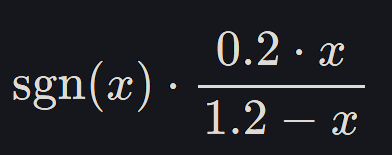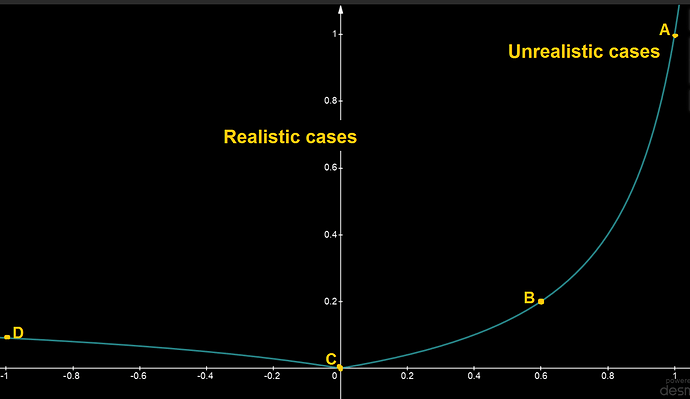Hmmm I use the occasion and make a plot here and nerd out a little.
(I always wanted to see it drawn)
Relative Dmg Gain from %RTR
Assumptions:
- 20 RTR assumed
- 20% RTR assumed
- This damage gain is a function over X
where X is Monster resists - all our -Y% RRs (only this one type RR added here)
[ i.e. if X = 0 we want to get 0% DMG gain
and if X=100%=1 we want to get 100% DMG gain
{because final monster res goes from 80% to 60% so DMG goes from “20%” to “40%”]
The formula I got is

(it agrees with single cases I mentioned above)
Let’s plot it from x=100% (1) to x=-100% (-1) too see
how the effectivness of 20% RTR changes:
From the plot:
-
A -> if X = 100% we get 1 = 100% -> double damage
-
but of course this is not a real scenario,
this would mean monster immune even after reductions of the first type -Y% -
maybe super noob Vitality player fighting Ravager with no -%Vit Res
-
-
B -> if X = 60% we get 0.2 = 20% relative damage gain
- still pretty unrealistic scenario, maybe it can happen with highly resistant monster + noob player
-
C -> more realistic X=0% and of course 0% relative damage gain due to weird multiplicative mechanics
-
from C to D we can see that relative damage gain slowly raises from 0 to 10%
- the real scenario here)
- which is not a lot considering the higher values will affect trash rather than bosses
To sum up - in realistic scenario I’d expect 0% - 5% relative damage gain to non-trash enemies
(because the values raise very slowly on the left side of the plot and slowly on the right side in realistic cases)
